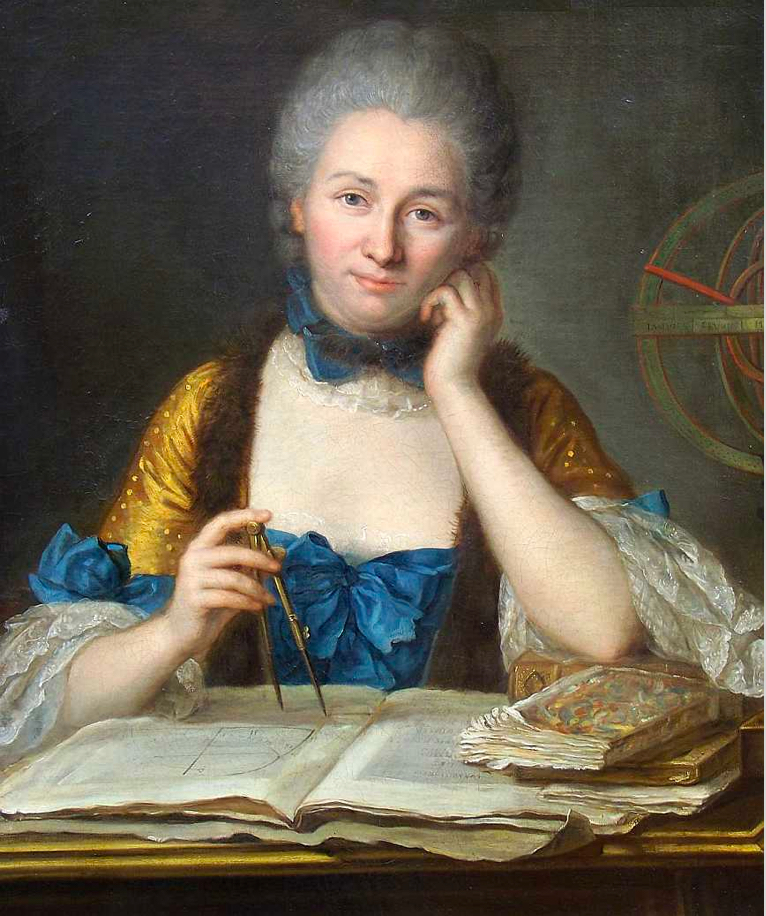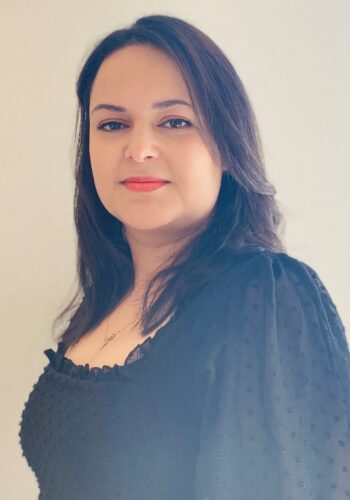POURQUOI LA TECH ?
Quand j’étais petite, j’adorais jouer avec mon « talkie-walkie ». J’étais très fière de l’avoir et fascinée par cette communication à distance sans fils. C’est ce côté « magique » de la technologie qui a attisé ma curiosité et m’a rapidement orienté vers des études scientifiques et techniques.
Aujourd’hui, la tech est synonyme de progrès et d’innovation. C’est un domaine extrêmement passionnant et dynamique qui continue à relever de nouveaux défis et à révolutionner notre quotidien.
VOTRE PARCOURS ?
Titulaire d’un diplôme d’ingénieur en Télécommunications et d’un master de recherche en Computer Vision, j’ai choisi de faire une thèse de doctorat dans le domaine de l’intelligence artificielle, en particulier l’apprentissage profond (Deep Learning en anglais). Cette thèse m’a permis de découvrir le domaine de l’IA et de prendre conscience de son potentiel pour imiter certaines facultés humaines (telles que la perception, la compréhension, le raisonnement, etc.). Par exemple, pouvoir apprendre à une machine à lire un texte qui me passionne depuis ma thèse. C’est pour cela qu’une fois mon doctorat en poche, j’ai rejoint MyScript, une startup leader mondial dans le domaine de la reconnaissance d’écriture manuscrite basée sur l’IA. Dans un premier temps, j’ai occupé un poste de chercheuse en IA spécialiste dans la reconnaissance de l’écriture manuscrite avant d’évoluer vers un poste de manageuse d’équipe. L’année dernière, j’ai eu l’opportunité de rejoindre Orange pour y relever de nouveaux challenges dans le domaine de l’IA appliqués à la reconnaissance de la parole et l’analyse de la voix.
VOTRE PREMIÈRE EXPÉRIENCE PROFESSIONNELLE DANS LA TECH ?
Ma toute première expérience dans la tech a eu lieu au Centre National des Etudes Spatiales (CNES), au sein duquel j’ai travaillé sur l’interférométrie radar : une technique qui permet de mesurer les mouvements du sol terrestre en analysant des images satellitaires. Cette expérience m’a permis de côtoyer des chercheurs et des experts en sciences de l’espace à la renommée mondiale.
VOUS FAITES QUOI AUJOURD’HUI ET POURQUOI ?
Aujourd’hui, je suis manageuse d’une équipe spécialisée en IA pour la reconnaissance de la parole et l’analyse de la voix, composée de chercheurs, intégrateurs, développeurs et architectes.
Cette variété des profils rend le pilotage des activités de l’équipe passionnant. De plus, manager une équipe qui travaille dans le domaine de l’IA de nos jours, et faire en sorte de rester à la pointe de l’état de l’art est un challenge quotidien. C’est en particulier ce dernier point qui m’intéresse le plus dans mon poste actuel.
VOS ATOUTS POUR CE POSTE ?
Je pense que mon background de chercheuse en IA, combiné à mon expérience de manageuse d’une équipe de recherche dans l’industrie sont des atouts pour piloter les activités de mon équipe, et avoir une vision allant de la recherche jusqu’au delivery.
Par ailleurs, mes précédentes expériences m’ont permis de développer des compétences humaines et relationnelles qui m’aident à être une facilitatrice et d’accompagner mes collaborateurs.
VOS DÉFIS PASSÉS, VOS RATÉS, VOS GRANDS MOMENTS DE SOLITUDE ?
Le premier article scientifique que j’ai soumis à une conférence internationale au cours de ma thèse n’a pas été sélectionné par le comité de programme. C’était une grande déception qui m’a fait douter de ma capacité à réussir en tant que chercheuse. Mais, j’ai rapidement réalisé que le plus important est d’entendre les critiques que j’ai reçues et de tirer les leçons de cet échec. Après ça, j’ai complètement changé ma manière d’aborder la recherche. Et pour la petite histoire, tous mes articles qui ont suivi ont été acceptés.
VOS MEILLEURS MOMENTS, LES SUCCÈS DONT VOUS ÊTES FIÈRE ?
De nombreux moments de mon parcours m’ont rendu fière. Si je devais n’en citer que deux, je choisirais en premier la soutenance de ma thèse de doctorat qui a eu lieu deux semaines avant la naissance de mon premier enfant. En deuxième, le prix de la meilleure application mobile au CES 2017 pour Nebo, une application de prise de notes interactives disponible en 66 langues et commercialisée partout dans le monde, dont j’ai été l’un des principaux contributeurs.
DES PERSONNES QUI VOUS ONT AIDÉE/MARQUÉE OU AU CONTRAIRE RENDU LA VIE DIFFICILE ?
Durant mes études de Master, j’ai eu la chance d’avoir comme Professeure et tutrice une chercheuse de renommée mondiale (Pr. Isabelle Bloch de Télécom ParisTech, lauréate de la médaille Blondel). Etudier et travailler à son contact m’a énormément marqué et j’en garde aujourd’hui des souvenirs merveilleux. Je suis également très reconnaissante à M. Pierre-Michel Lallican, CTO de MyScript, M. Joachim Fléchaire directeur de AI Tools & Technologies chez Orange, qui m’ont tous les deux fait confiance à des moments différents de mon parcours, en me permettant d’évoluer vers des postes à responsabilités.
VOS ENVIES ET DÉFIS À VENIR ?
L’IA est un domaine d’avenir qui sera de plus en plus présent dans notre quotidien avec notamment, des nouveaux enjeux sociétaux.
Dans ce contexte, je souhaite rester acteur de ces transformations tout en adoptant une démarche d’IA responsable et éthique. Il s’agit de mettre des sujets comme la gouvernance des données, l’équité et l’explicabilité au cœur de nos travaux pour développer une IA digne de confiance.
ET VOUS FAITES QUOI EN DEHORS DE VOTRE TRAVAIL ?
Je pratique le Yoga, en particulier le yoga vinyasa. Je prends également beaucoup de plaisir à faire de la pâtisserie, tester des recettes gourmandes et créer des nouvelles associations de saveurs.
VOS HÉROÏNES (HÉROS) DE FICTION, OU DANS L’HISTOIRE ?
Marie Curie et Gisèle Halimi sont deux femmes extraordinaires dont le parcours et l’histoire m’ont toujours fasciné et inspiré.
VOTRE DEVISE FAVORITE ?
« Aie toujours pour intention de contribuer positivement au monde qui t’entoure ».
UN LIVRE À EMPORTER SUR UNE ÎLE DÉSERTE ?
Toute l’œuvre d’Hemingway.
UN MESSAGE OU UN CONSEIL AUX JEUNES FEMMES ?
Dépassez les préjugés qui peuvent laisser penser que la tech est un monde d’hommes. Croyez en vous et osez la tech !


